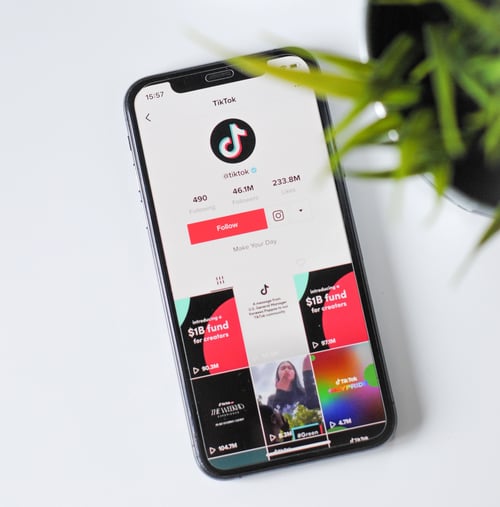A dangerous trend has emerged: teenagers and young adults are using TikTok videos to self-diagnose mental illnesses. Parents, mental health professionals, and now state attorneys have taken notice, criticizing the wildly popular social media platform and demanding change. How did we get here?
Lockdowns and isolation brought on by the pandemic pushed many to seek virtual connections, relying more on devices as an outlet for human interaction. One survey discovered a 50-70% increase in internet use, with 50% of the time spent engaging on social media, scary statistics given that heavy social media use has been linked to an increased risk for depression, anxiety, and even suicidal thoughts. Those numbers, of course, come from reputable sources in collaboration with mental health professionals. A significant number of TikTok users, however, have skipped seeking professional help in favor of diagnosing themselves.
As the leader in behavioral health integration in modern primary care, evolvedMD understands the value of digital therapeutics when anchored by expertise. However, we must also acknowledge and spread awareness about the dangers of self-diagnosing and the value of seeking guidance from licensed professionals, whether in primary care or an integrated care setting.
The Dangers of Self-Diagnosing Mental Health Issues

Imagine this: a teenager logs into TikTok and discovers a popular video describing symptoms of borderline personality disorder. Highlighting intense depression and anxiety, extreme mood swings, and other symptoms, the host then asks viewers to evaluate whether they’re experiencing similar symptoms. Some might even say, “If you have these symptoms, you may have borderline personality disorder like me.” After watching several videos with similar content, the viewer may believe they also have borderline personality disorder and self-diagnose, all without ever consulting a professional.
While these videos may bring awareness and help destigmatize mental health issues, self-diagnosing can be dangerous for both physical and mental health. Two key risks are misdiagnosis and mistreatment. In the case above: the viewer could have borderline personality disorder, but it could just be a case of depression and anxiety, or maybe they’re suffering from a medical disease such as heart disease that’s contributing to their symptoms. Even worse, the viewer may then attempt to treat themselves with over-the-counter medications or other methods that could complicate their actual, undiagnosed, condition.
There’s one point we want to make clear and continuously reinforce: there’s no way to truly understand what one may be experiencing without consulting a licensed professional. As an organization that hires masters-level clinicians, evolvedMD is committed to the notion that individuals experiencing any symptom seek professional help rather than consulting social media, search, or other non-validated resources.
Solution: Trust Professionals

If you or someone you know may be experiencing adverse symptoms of any kind, regardless of severity, the best thing to do is seek help from a qualified professional. Primary care providers (PCP), psychiatrists, social workers, substance abuse counselors, and many other licensed clinicians have gone through rigorous academic and clinical training to provide an accurate assessment and/or clinical diagnosis. For most people , the likeliest route to seek treatment is in primary care. About 75% of U.S. adults have an established source of primary care and roughly 91% of 12-to-19 year old adolescents had a primary care visit in the past two years.
While family physicians are qualified and well-prepared to provide many mental health services and resources, we recommend an innovative approach that is comprehensive, affordable, and proven to be effective: behavioral health integration. For evolvedMD, we have seen firsthand the power of whole-person care and the impact of embedding qualified behavioral health professionals in primary care. Collaborative care is a great solution for individuals who are curious about what they are experiencing based on TikTok views and the best place for them to receive validated treatment.
That is not to say TikTok has not provided some benefits to the overall mental health discussion. In recent months, TikTok has launched in-app mental health resources for users, including: a list of crisis hotlines around the world, the Crisis Text Line whenever someone searches for a term such as #suicide, and others helpful tools. There are also a handful of mental health professionals utilizing TikTok who provide educational information on various topics including Dr. Julie Smith, Shani Tran, LPCC, and Dr. Kojo Sarfo. While these resources shouldn't replace seeking professional help, they do provide value in spreading awareness around mental health and getting the conversation started around your own mental health.
Other Actionable Advice From Our Team of Professionals

Take a break – Given the sharp increase in social media use, we highly recommend taking breaks from Facebook, Instagram, TikTok, and other social media platforms you may use. Research shows that taking a break from social media or quitting altogether can improve happiness and mood, self-esteem, and sleep.
Refine online research – There is nothing wrong with conducting preliminary research before seeking professional help. Doing so can help you to better understand your concerns and prepare for your doctor’s visit. With that said, we recommend you don’t rely on social media and only seek relevant information on websites ending with .gov., .edu, or .org.
Practice self-care – Having a solid self-care routine can help you feel healthier, happier, and rejuvenated. At evolvedMD, we’ve cultivated a culture of self-care and well-being so that our people feel supported, and we want you to make sure we do our part to set you up for success, too. That’s why we’ve compiled a curated list of tips from our team to help inspire your self-care routine.
We are thrilled and thankful that TikTok and other digital platforms are conversation starters, bringing awareness to the harrowing state of mental health. However, we hope that individuals also realize the importance of leveraging professionals for diagnoses and care for their overall mental health.
Learn more about evolvedMD’s unique and ongoing
approach to behavioral health integration.